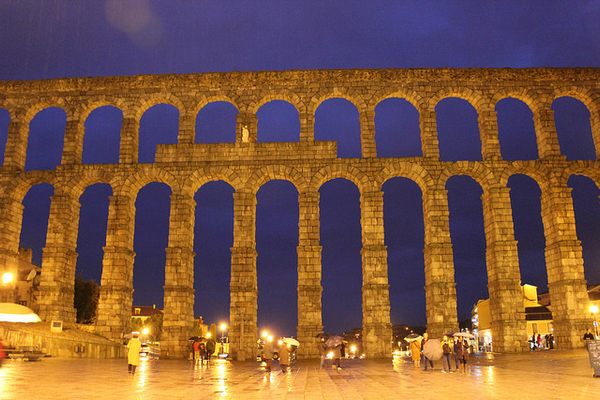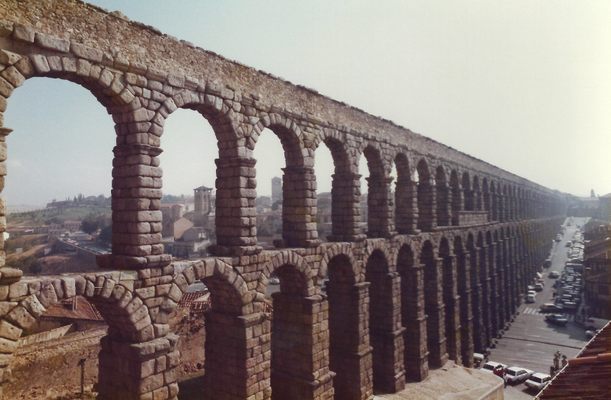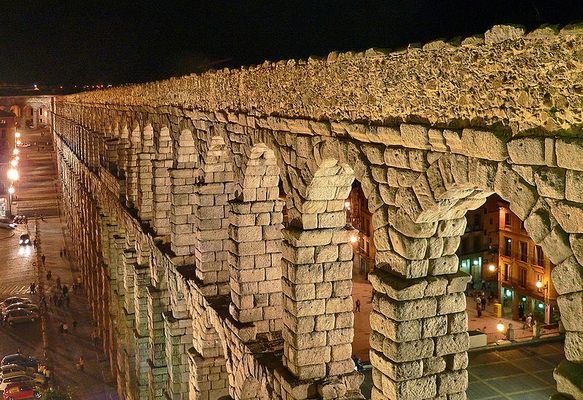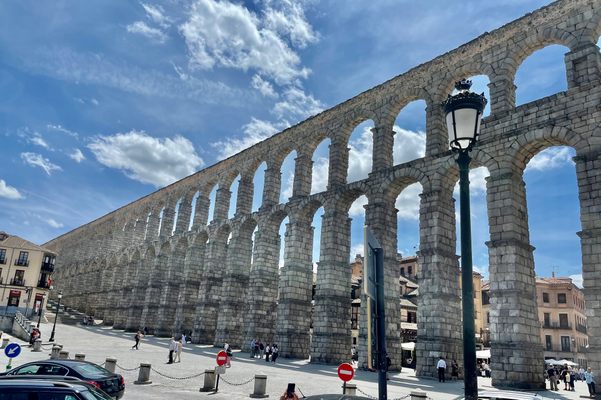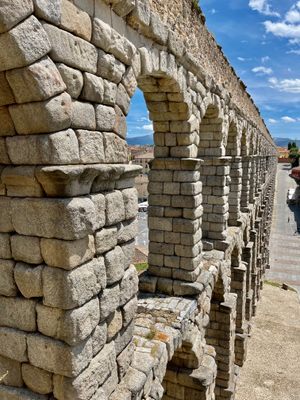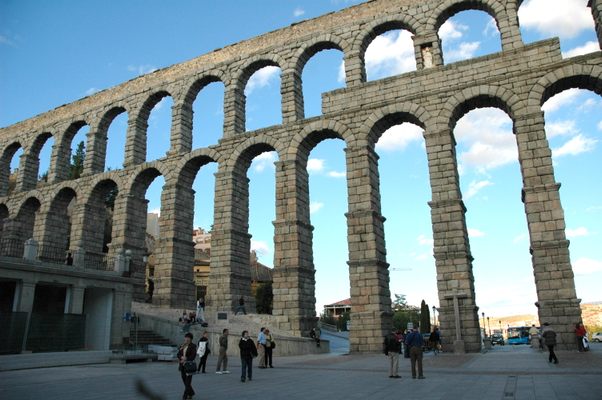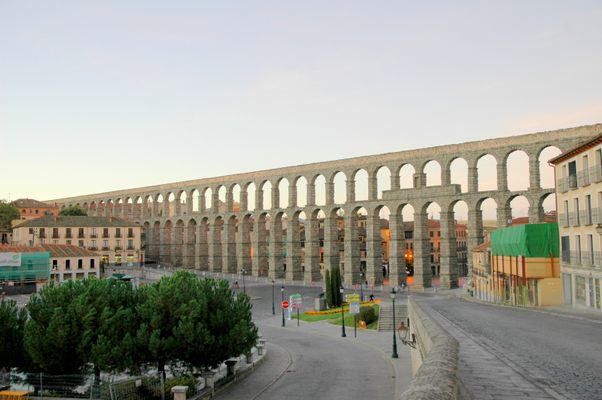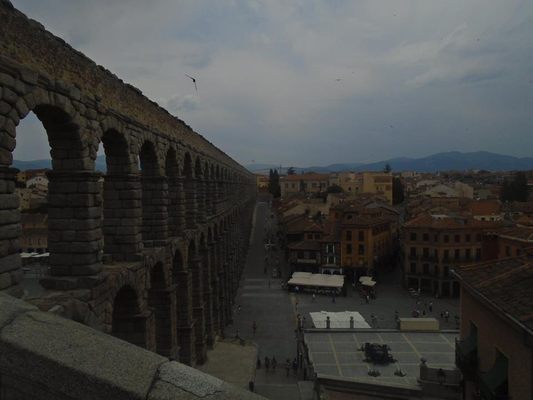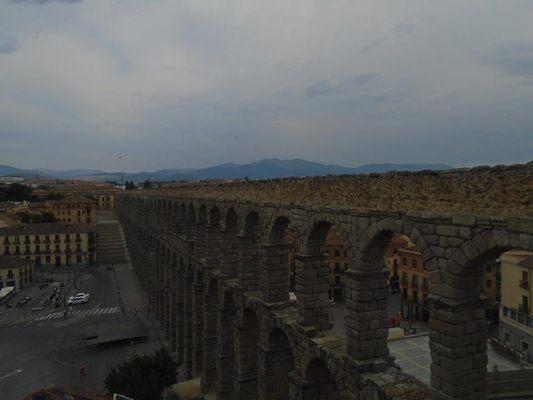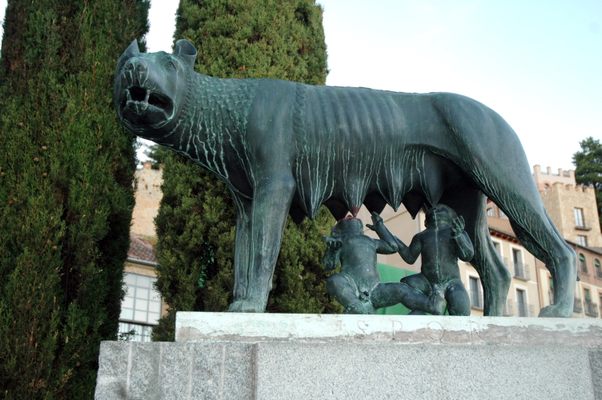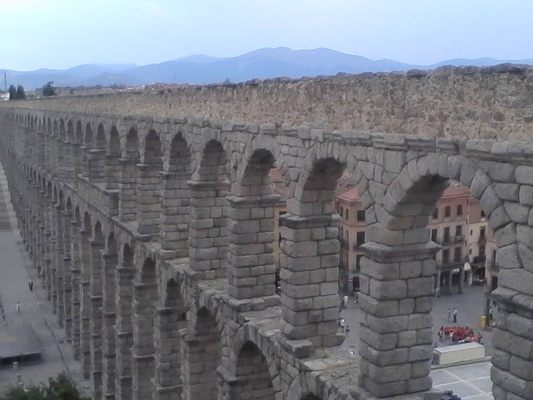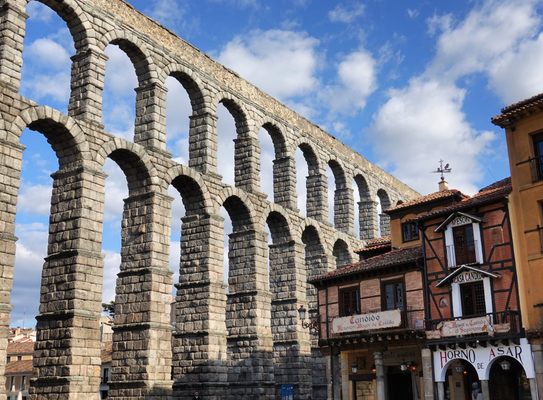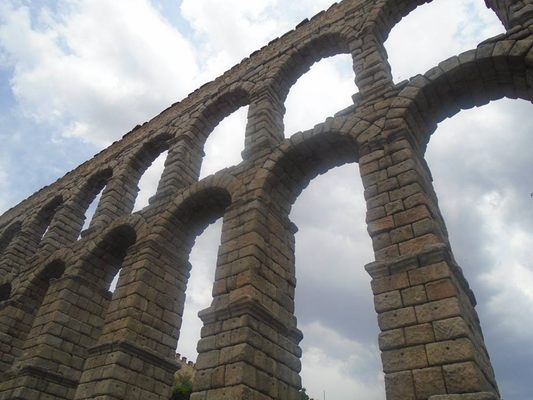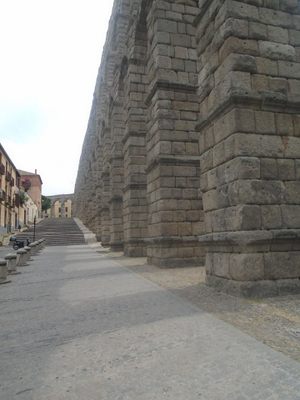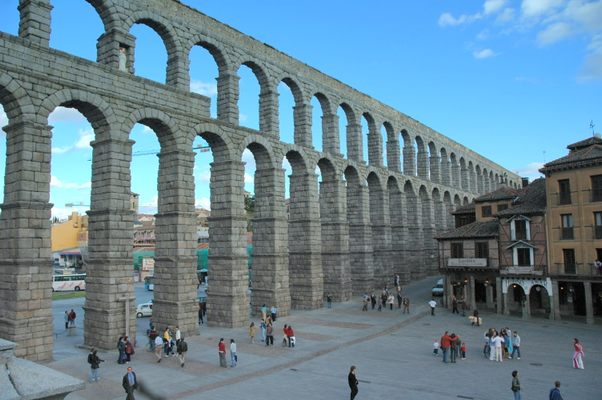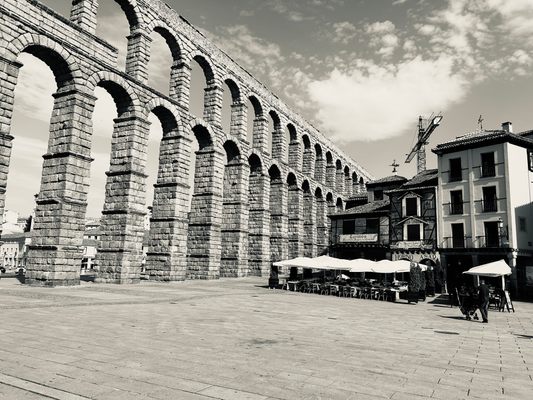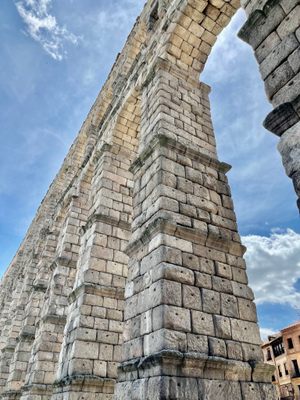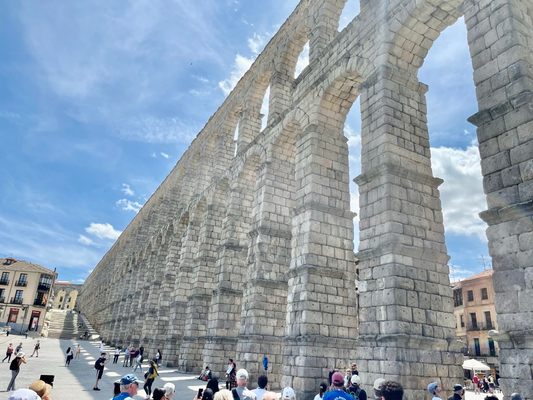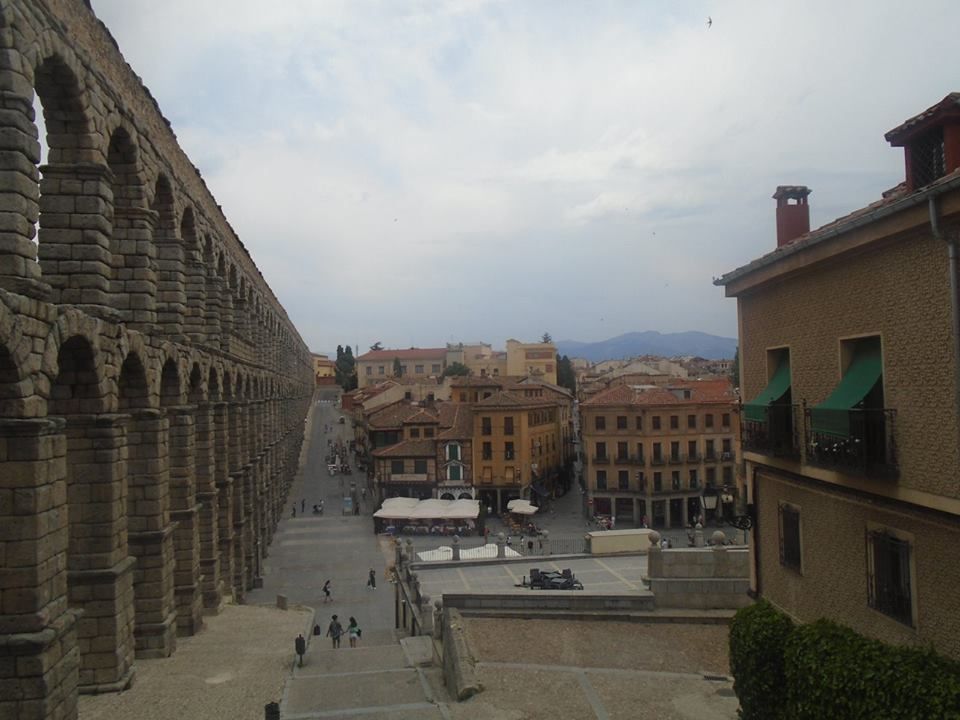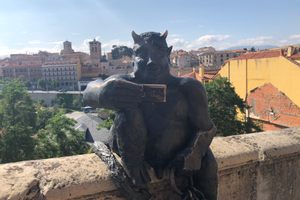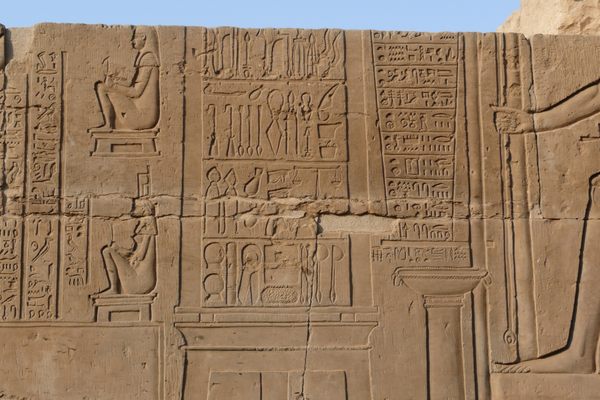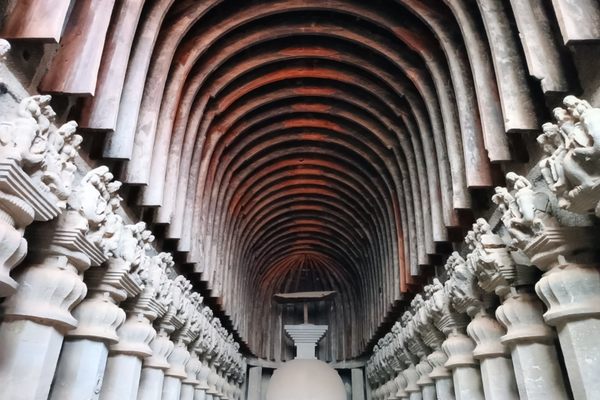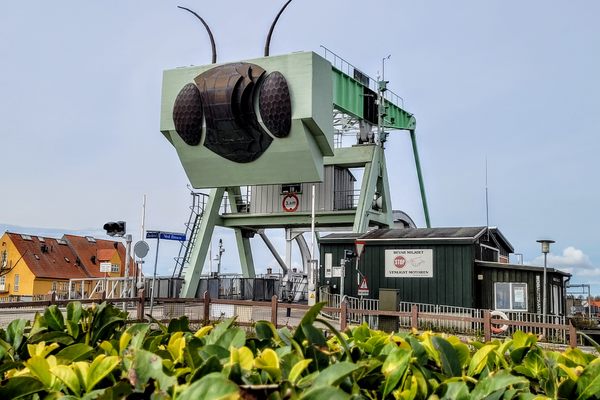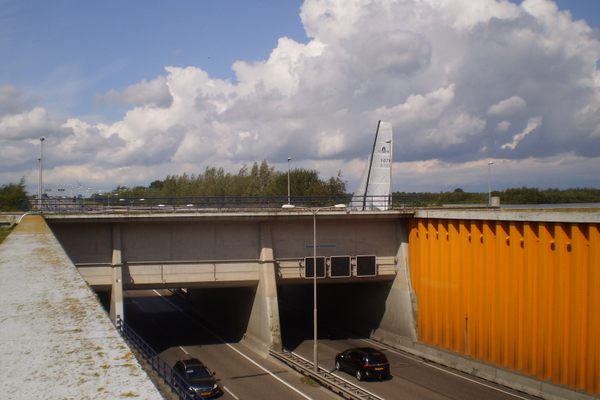About
Emblazoned with the coat of arms of Segovia, the massive Segovia Aqueduct is one of the most well-preserved existing testaments to the engineering feats of ancient Rome.
While its exact construction date has been difficult to pin down due to the absence of any sort of inscription, the aqueduct (and aqueduct bridge) is generally believed to have been constructed around 1st or 2nd century A.D. Many of the magnificent aqueducts of the Roman Empire have disintegrated leaving only ruins and piers to mark their existence. Of the few still standing, Segovia's is not only remarkably well-preserved, it continued to supply water to the city from the Frio River well into the 20th century.
Roughly 2,950 ft. long and at its highest point almost 94 ft. tall, the aqueduct bridge is made up of 167 arches supported by pillars. Its colossal granite blocks are joined without use of mortar or clamps, ingeniously held together by balancing forces. The design follows the guidelines laid out by Roman architect and engineer Vitruvius in his 15 B.C. multi-volume architecture guide, De Architectura, written for Vitruvius's generous patron, Julius Caesar.
Nicknamed “Puente de Diablo” or Devil’s Bridge due to a local legend detailing Lucifer's part in the construction of the bridge to impress a lady friend, the aqueduct is arguably best enjoyed at Azoguejo square, where its pillars are at their highest point. A towering symbol of Segovia, the aqueduct is an extraordinary illustration of the marriage between the grandiose beauty and ingenious functionality that defined the architecture of ancient Rome.
Related Tags
Know Before You Go
In the shadows of the aqueduct you can find a replica of the bronze sculpture of the Capitoline, the she-wolf that in ancient Roman mythology suckled and raised the founders of Rome, Romulus and Remulus.
Community Contributors
Added By
Published
February 15, 2013
